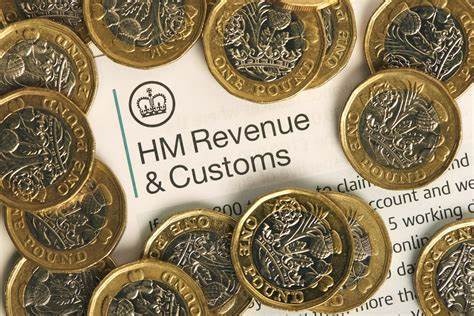Merch, Memberships, and More: Declaring Alternative Income Streams as a Creator
Today's blog looks at how opportunities that arise for content creators to make alternative income streams can impact on their tax liability.
TAX ADVICESELF ASSESSMENTINCOME STREAMSMERCHANDISE
The rise of content creation as a profession has opened up numerous revenue opportunities for UK creators, from selling branded merchandise to offering exclusive memberships. While these income streams can be extremely lucrative, they also come with their own tax obligations that could be overlooked. Failing to declare this new income properly can lead to hefty fines or unexpected tax bills.
At Cre8tax, we specialise in helping content creators navigate the complexities of UK tax laws, ensuring compliance while also maximising tax efficiency.
Here’s what you need to know about declaring alternative income streams.


What Counts as Taxable Income for Creators?
HMRC requires UK residents to declare all income, regardless of its source. For content creators, taxable income could include:
Merchandise Sales: Whether you’re selling T-shirts, mugs, or other branded items, profits from these sales are subject to tax.
Membership Subscriptions: Revenue from platforms like Patreon or YouTube Memberships must be included in your annual tax return.
Sponsored Content and Brand Deals: Payments from collaborations or sponsorships are taxable, even if they’re paid in goods or services.
Affiliate Marketing: Earnings from affiliate links or referral programs are also taxable.


Declaring Income: What You Need to Do
1) Register with HMRC
If you earn more than £1,000 in a tax year from self-employment (including side hustles), you need to register for Self Assessment. This includes income from merchandise, memberships, or any other creator-related activities.
2) Keep Accurate Records
Maintain detailed records of all income and expenses. Use spreadsheets or accounting software to track:
Sales receipts
Platform payouts (e.g., Patreon, Teespring, etc.)
Invoices for brand deals or sponsorships
3) Understand Allowable Expenses
Many costs associated with your creator business can be deducted from your taxable income. Examples include:
Costs of producing merchandise (e.g., design and printing)
Platform fees for memberships or transactions
Advertising and marketing expenses
4) Pay Your Tax Bill on Time
The Self Assessment deadline for UK residents is 31 January following the end of the tax year (6 April–5 April). Late filing or payment can result in penalties.


Tax Tips for Creators
Separate Personal and Business Finances: Open a dedicated bank account for your creator income to simplify record-keeping.
Plan for Tax Payments: Set aside a portion of your earnings (around 20-30%) to cover your tax bill.
Seek Professional Advice: Tax rules for creators can be complex. A tax advisor experienced in the digital economy can help you stay compliant while optimising your tax strategy.
Don’t Overlook VAT: If your total taxable income exceeds £85,000 in a 12-month period, you may need to register for VAT. This is particularly relevant for creators with high merchandise or membership sales.


GET IN TOUCH
Declaring alternative income streams doesn’t have to be stressful. At Cre8tax, we specialise in supporting UK content creators with all their tax needs, from compliance to tax planning. Contact us today to book a consultation and take the stress out of your tax obligations.
Email us at info@cre8tax.co.uk or call free from a mobile or landline on 0800 0016 878.




